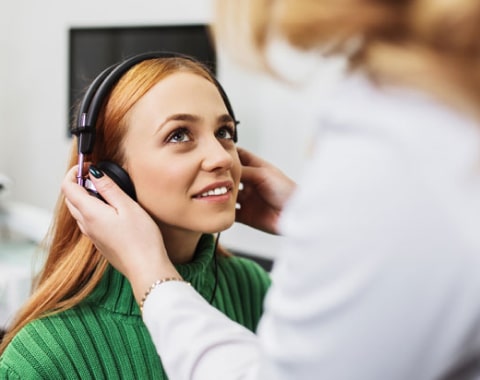Every hearing loss patient’s situation is unique, and there’s a hearing aid for practically any situation. Someone who prefers quieter activities like reading, drawing or gardening will likely need different technology than someone who enjoys spending time in large groups and louder scenarios. No matter what you spend your days doing, there’s a hearing aid out there that will best serve your needs.


Our Audiologists Will Provide the Technology That Works Best for You
1. Identifying Your Needs
Our first step is learning about your lifestyle. What activities does your daily life consist of, and where do you spend most of your time? What have you given up because you can’t hear?
The right treatment plan, which may include hearing aids, will address your individual needs. Your life is multi-faceted, and so is your listening environment; we recommend models that meet your changing needs head-on.
2. Recommending the Latest Models
After we’ve identified your hearing levels, we’ll discuss what solutions are designed to work with your lifestyle.
We work with multiple hearing aid manufacturers, and every model has different features. What do they have in common? They all meet current FDA regulations for medical devices.
They are very different from anything that would be purchased as a “hearable” or “listening device” without the support of a medical professional. Unlike these devices, hearing aids are customized to your individual needs with the support of an audiologist.
3. Ongoing Professional Support
Hearing aids are just the start of your customized treatment plan. When you work with The McGuire Hearing Center, you’re starting a partnership dedicated to making sure you hear all the sounds around you.
Our audiologists will work with you to make sure your hearing aids are comfortable, correctly adjusted and that you have the training to use and benefit from all their features. We also provide ongoing support and counseling for you and your family to assist you in acclimating to your new hearing device.
The world is full of sounds. Whether you want to hear live music or the laughter of your family, we’re here to help you engage with them all.
Call The McGuire Hearing Center at (937) 293-7877 for more information or to schedule an appointment.